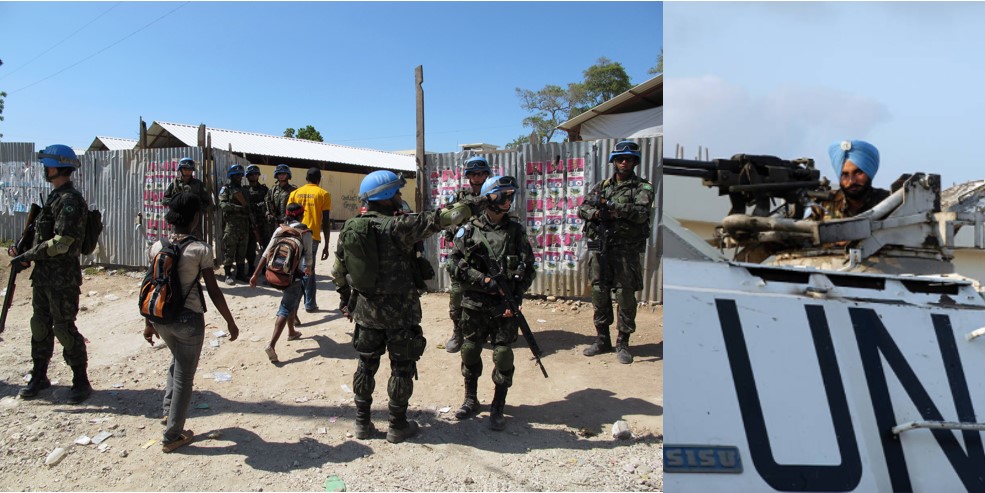
Future of United Nations Peacekeeping and India’s Continued Participation
Thu, 04 Mar 2021 | Reading Time: 13 minutes

General
The direction in which United Nations Peacekeeping is headed requires a careful analysis at this critical juncture as the international organisation that was set up in the aftermath of the horrors of World War II to “save succeeding generations from the scourge of war” is now increasingly under scrutiny with the general perception in the international community that, into the third decade of the 21st Century, the effectiveness and very relevance of the UN will be predominantly in question. The situation appears to be that major political, economic, social and cultural issues are more often than not, being discussed and decisions arrived at, under the aegis of groupings like the G-8 and the G-20, or regional and sub-regional blocks or alliances.
Basic Parameters that Need to be Addressed
Any meaningful discussion on the planning and conduct of United Nations peace operations into the future needs to focus on the following basic parameters:
- Should consent of parties to the conflict remain the cardinal principle of UN peacekeeping? The Brahimi Panel Report (submitted at the commencement of the 21st Century) recommended it should; and, to those of us who have been involved with this activity, there appears to be no reason to suggest otherwise; and subsequent reports on the subject also strongly reiterate the desirability of retaining this principle. A useful modification suggested by a former USG DPKO Jean-Marie Guehenno was: that “consent of at least the major parties to the conflict”” could be the criterion.
- Impartiality is another cardinal principle that must NOT be discarded if UN peacekeeping is to continue to have credibility and legitimacy. This is of course under severe strain in many missions where “blue helmets” are deployed in support of Government forces that have questionable authority and even less credibility. In many instances, Government forces are as culpable if not more so, in targeting civilian population, as the rebel forces.
- The third cardinal principle of “minimum use of force by blue helmets only in self defence” has already been largely replaced in recent years by mandates providing for Chapter VII provisions authorising the use of force by UN peacekeepers for the “protection of civilians”. Whereas this is a legitimate task that should be undertaken by UN forces when required, they must: firstly, be equipped to do so; and secondly, do so without taking sides, implying that they should act not only against ‘rebel’ forces, but also if necessary, against Government forces that are violating the terms of the agreement arrived at.
Stressing that the United Nations was not designed to handle peacekeeping operations on a large scale without substantial reorganisation of its capacity, a major recommendation the Brahimi Panel had made with some emphasis, was that it should not be tasked to go everywhere. Notwithstanding the best intentions, there can be little doubt that the UN has serious limitations. Since there are many in mission areas and quite a few within the international community who seem to believe that the UN should be prepared to fight their battles for them, it may be useful to remind ourselves that the UN does not wage war. The UN does not and should not, have an “enemy” against whom it needs to prosecute “offensive operations”. Where enforcement action is required against a state (or an organization like the ISIS) that has violated international norms, the UN Charter clearly stipulates that ‘multi-national’ operations under Chapter VII be undertaken. And these are like Operation Desert Storm undertaken against Iraq in 1991, without doubt, combat operations, NOT peacekeeping operations.
Credibility of UN Peacekeeping Operations
The credibility and success of UN peacekeeping operations in early years, can be attributed to three primary factors, all of which are under severe strain at present:
- Legitimacy: being somewhat compromised by deployment of missions without the consent of at least the major parties to the conflict. The question that arises is whether the Security Council as constituted at present has the legitimacy or the credibility to mandate intervention operations in conflict ridden societies – the answer is obvious.
- Burden sharing: is now a myth because the developed world has distanced itself from participation in UN peacekeeping operations except to the extent of garnering senior positions in command or headquarters staff, and within the decision-making apparatus. As such, the UN is deprived of access to trained manpower and state-of-the-art equipment resources, a serious infirmity that needs to be addressed.
- Relative flexibility: now being stretched because of the number of missions and the tasks peacekeepers are increasingly being called upon to perform; ranging from peacekeeping to peace-making to peace building.
Peacebuilding Activities
The Brahimi Panel had clearly identified that activities like reintegrating former combatants into civilian society, strengthening the rule of law mechanisms including police and judicial oversight, improving respect for human rights through the monitoring, education and investigation of past and existing abuses, providing technical assistance for democratic development, promoting resolution and reconciliation techniques, and restoration of state infra-structure, etc fall under the umbrella of peace-building activities. However, it appears that the increasing trend today is to include many of these tasks as part of UN peacekeeping. As a consequence, peacekeeping missions are tasked to take on more than they are mandated, trained and equipped for, and remain in the mission area till eternity.
Political Support
This has always been a major issue, invariably for the inadequacy of support than for the support extended. Major players particularly the P5 and other powerful members of the Security Council, must ensure sustained political support to a mission that is deployed. This should be effected by not interfering themselves in the developments in the mission area, and equally importantly, preventing interference in the mission area by other actors, particularly neighbours; through political pressure; sanctions; withholding aid; etc. If such unqualified political support is not forthcoming, the mission should be wound up.
‘Robust’ Peacekeeping
Most missions today are being deployed with mandates that provide for the use of force; increasingly referred to as ‘robust’ peacekeeping. There can be little difference of opinion that the concept accords with the reality of the ground situation today. However, there is a need to be clear about the interpretation of the term, and what it implies at the operational level:
- How ‘robust’ is robust? How far do the peacekeepers go in pursuance of such a mandate? Do ‘blue helmets’ actually engage in combat? Would they be dealing with an “enemy”? In this context it may be useful to recall the combat operations undertaken by ‘blue helmeted’ MONUC forces in the early 1960s against foreign mercenaries and secessionist forces led by Moise Tshombe in the Congo, in which the Indian brigade had a stellar role to play; and suffered fatal casualties as well.
- It is imperative that the peacekeeping forces are reminded they would be dealing with ‘spoilers’; usually rebel forces, but on occasions, this could even be ‘government forces’.
- Hence much discretion is required; for which clear rules of engagement must be enunciated and incorporated in training by building on the experience of peacekeepers who have been through situations that called for the use of force.
- The point that can be made with some emphasis, is that troop contributors should be apprised of the possible rules of engagement prior to making forces available, and be made aware of the fact that their troops could well be engaged in operations that entail inflicting casualties as also taking casualties.
- A serious infirmity of the UN system as currently structured is that the HQ in New York does not have the authority or capacity to provide ‘strategic’ direction in combat situations that call for the use of force. Whether this could be remedied by the Security Council if it would address the recommendation of the 2005 World Summit to consider reform of the Military Staff Committee, is a matter for separate examination and discussion, particularly by troop contributor countries.
- Use of force is not a panacea for all the problems in mission areas. Experiences of combat operations undertaken in Iraq, Afghanistan, Syria, Yemen, etc clearly suggest that the use of force has to be complemented and supplemented by political efforts for reconciliation and by peace-building activity for restoration of governance, infra-structure, rule of law mechanisms, etc. The use of force by peacekeepers should be limited to actions required to be taken for the ‘protection of innocent civilians’.
Use of Force for Protection of Civilians
Protection of civilians has become a mandated task for most UN peacekeeping missions; and rightly so. However, it is a task with many ramifications that must be clearly understood. In a statement made by former USG DPKO Alain Le Roy before the Fourth Committee on 22 October 2010; on the subject of a comprehensive review of the whole question of peacekeeping operations in all its dimensions, he is reported to have stated that, “Missions have struggled to fulfil expectations and been hampered by limited consent and differences within the international community regarding strategy. They have faced a lack of adequate capabilities and support structures to enable a robust response”.
The use of force for protection of innocent civilians, and for implementation of the mission mandate was first resorted to in ONUC in the early 1960s. India had a brigade group in that mission and this was used to launch combat operations against mercenaries and Katangese rebels led by Moise Tshombe. In the process, and in achieving success, the Indian contingent suffered a number of fatalities (36) and many more injured. Hence this is not a new concept or phenomenon. But it needs to be carefully calibrated and located within a credible political framework both locally and internationally. Regional players, as also the major powers, pursue their own agenda that in many cases do not necessarily complement the mission mandate.
The use of force means appropriate resources must be available. In almost all UN missions deployed today this is wanting because those who have the resources, both in terms of trained manpower and equipment, are not participating in UN peacekeeping operations.
The connotations of the use of force must be clearly understood by Security Council members who mandate it, the staff at UN HQ, and by troop contributors; and the concept imaginatively evolved. And it bears repetition that peacekeepers must be mentally and physically attuned to the fact that the use of force will mean inflicting casualties on belligerents. And that casualties may well be incurred by members of the force itself. The senior leadership and command and control aspects assume added significance to ensure that junior leaders and personnel in the field are not made ‘scapegoats’ when the mission is asked to account for casualties that may be caused to belligerents who seek to target innocent civilians including women and children. In that context whereas ‘protection of civilians’ is fine, how is ‘protection of peacekeepers’ against human right activists and belligerents that exploit the situation, to be ensured. This is a command responsibility that will need particular focus.
Standing UN Capability
The need for a standing capability at UN HQ has been recognised in so far as civilian police is concerned. Given the imperative for speedy deployment of peacekeeping forces in intra-state conflict situations once even a semblance of an agreement has been hammered out between belligerents, it is high time that the international community seriously considers setting up of a standing UN capability comprising: military personnel, including observers; civilian police; civil affairs personnel; human rights personnel; rule of law experts; etc. Put together by selection of volunteers on deputation from members states for fixed term contracts of two to three years; who must revert to home countries without exceptions or extensions. Such a force should obviously be located, equipped and trained under UN auspices, and be available in full or in part, for immediate deployment into a mission area as soon as the Security Council takes a decision to that effect. After replacement by a force assembled in the normal course, revert to ‘reserve’ status for reinforcement of existing missions in emergency situations, or for fresh deployment. The added value of such an arrangement is that of military advice to the Security Council when required; and provision of advice on training to troop contributors on reversion of personnel to their home countries.
Absence of Exit Strategies
As things stand, it would seem that once a UN peacekeeping mission is set up, it carries on into eternity. This is largely due to the vested interests of the various players in the political arena, within the UN system and in mission area. Other than the military, and possibly the civilian police, who have fixed tenures of six months to one year, others have little motivation to see the termination of the mission. They would be out of a job! This applies to much of the international UN staff as well as to locally employed staff. Equally, local leadership of at least some of the parties to the conflict are dependent on the continued presence of the UN to sustain the patronage they can provide to ostensibly boost the economy as well as to ensure retention of their status. Some regional and even global players need the UN in place to deflect adverse criticism of their inadequacies or for manipulations of the local situation in pursuance of their own interests.
Training Standards
All of us who have had the privilege of heading peacekeeping missions are aware of huge variations in training standards of military and police units and personnel deputed by member states. This inadequacy obviously needs discreet handling and is receiving increasing attention of the Department of Peacekeeping Operations in New York. Besides using the expertise available to develop realistic training modules and practices, it is a matter of some satisfaction that DPKO is reaching out to countries and sub-regions to exploit the practical experience and established competence that exists. To that end, more effective use of the capacity available in the various UN peacekeeping centres around the world would serve the system well. Together with more delegation of authority to mission heads, this would reduce staffing at UN HQ, effect economy, and add to efficiency.
Looking Ahead
In addition to political, military and financial challenges, there is need to evaluate the challenges of “a vision of PKO in the 21st Century, evolve a realistic doctrine, and garner the support of the developed world”. It needs to be stressed that member states, and more particularly the P5, curb the urge to try and remedy everything that is wrong in the world with UN PKO. It is imperative that we are modest about what UN PKO can achieve. It is for deliberation whether aspects like environmental change, economy, transnational crime, terrorism, etc are for PKO missions.
We must be clear whether ‘peace-building’ in the complete sense is a task for peacekeeping forces; in my view it is not. In which case, peacekeeping missions must be given limited responsibilities in this regard; and even so, on a temporary basis, to be handed over at the earliest opportunity to others who are better equipped and more competent in that field. That must then form the basis of an “exit” strategy, which must be benchmarked.
Review interpretation of the triad of principles of UNPKO; particularly aspects of ‘consent’ and ‘use of force’ in context of the fact that the top priority for missions in the future will largely be ‘protection of civilian populations’ affected by intra-state conflict situations.
Develop a clear understanding of what ‘use of force’ and ‘robust peacekeeping’ imply. Also what happens when “host authorities” are part of the problem? Furthermore robust peacekeeping that involves the use of force requires UN HQ and Security Council support; in terms of political backing and resources..
It is time for the establishment of a standing UN capability that would enable immediate setting up of missions, and for use as reinforcements when required. It is also time to implement the concept of “in-theatre” reserves for assistance to adjacent missions.
India’s Contribution to United Nations Peacekeeping Operations and Continued Participation
India’s spontaneous and unreserved participation in United Nations peacekeeping operations over the years is a clear demonstration of India’s commitment to the objectives set out in the United Nations Charter. Not in terms of rhetoric and symbolism, but in real and practical terms, even to the extent of taking casualties to personnel (over 150 fatalities to date). This commitment has been acknowledged by the international community, successive Secretaries General and the United Nations Secretariat. But even more significantly, the effectiveness of such participation and commitment to United Nations peacekeeping efforts has drawn respect and praise from fellow military-men of other countries and many others that have served jointly with our commanders, observers and contingents, in various parts of the world. Hence, the image of the Indian Armed Forces and Police is that of highly competent and well-trained professionals.
It is important to emphasise that much of Indian participation in United Nations peacekeeping operations relates to national security interests. Participation in the Korean and Cambodian operations demonstrated India’s stake in the stability of East and South East Asia. Its vital interests in West Asia, both in terms of energy requirements and our historical connections, were more than adequately reflected in participation in the United Nations peacekeeping operations undertaken in the Gaza Strip and Sinai, Iran/Iraq, Iraq/Kuwait, and Lebanon . The geo-strategic interests in the stability and well-being of the newly emerged states of Africa, has been demonstrated by Indian contributions and participation in the operations in the Congo (twice), Namibia, Mozambique, Angola, Somalia, Liberia, Rwanda, Sierra Leone, Ethiopia/Eritrea and Sudan/South Sudan. India has the unique distinction of having participated in almost every UN peacekeeping operation in Africa to date. India has provided a number of Force Commanders and three Military Advisers at UN HQ.
As we look ahead, we perceive a more dynamic and significant role for India in the field of international relations, including the maintenance of international peace and security. This obviously means a greater role in the various organs of the United Nations, possibly even as a permanent member of the Security Council. If India were to fulfil such a role with any degree of credibility, it is inescapable that it not only accepts the responsibilities that go with such a perceived role, but offer acknowledged expertise in areas of United Nations activity like peacekeeping. India must exploit its undeniable experience and professionalism in this field, and put it to good use in the maintenance of international peace and security.
Conclusion
It is possibly appropriate to conclude with some personal reflections on a couple of important aspects in this context. There is a perception among the troop contributor countries of the developing world to United Nations peacekeeping, that there is reluctance in the militaries of the developed world to participate in United Nations peacekeeping missions on grounds of possible casualties to personnel. This is a perception that needs to be removed if the credibility of United Nations peacekeeping is to be sustained. I have had the great honour and privilege of commanding military personnel from 34 countries of the world (as also a large number of civilian police and international and local civilian staff). With that background I can state with some conviction, that no self-respecting soldier, sailor or airman (no matter which country) generally has any reservations whatsoever about participating in a peacekeeping operation. Provided the mandate is clear and achievable; adequate resources are provided; and he or she is assured that it has the political backing and support of the international community. The very purpose of deputing military personnel into a mission area is that there is an element of danger. Which, because of the training and conditioning, they are reasonably well equipped to handle. If there was no danger, there is no reason why a group of unarmed civilians cannot undertake the task. Having stated that however, it needs to be emphasised that because the military as a well disciplined force, undertakes an allotted mission without questioning the political merits and demerits, a greater responsibility devolves on those who confer the mandate and send the military into a mission area.
United Nations peace operations are a most useful area for effective and increased military to military co-operation, which if properly orchestrated, could lead to better understanding and appreciation even between personnel of contingents from countries that are otherwise in a state of hostility with each other. There are a number of examples of the understanding and camaraderie built up between otherwise antagonistic armed forces personnel when operating under the United Nations flag. With the nomination of “stand by” forces by member countries for deployment in United Nations peace operations, the scope for periodic inter-action and training increases. This lays the foundation for more effective joint participation in international operations.
As we move forward in the 21st Century therefore, it is essential that we do not allow the perceived inadequacies of some past operations to cloud our judgement, and swing from one extreme of attempting to undertake too much, to undertaking too little. There is so much the international community can do to ensure the maintenance of international peace and security, and there is no way it can absolve itself of that responsibility. India’s past experience and its wealth of talent and expertise in the vital fields of military, police and administrative capabilities confer on it a great advantage in terms of furthering its national interests by active participation in this area of United Nations activity.
*******************************************************************************
Author

Lt Gen Satish Nambiar, PVSM, AVSM, VrC (Retd) was the first Force Commander and Head of Mission of UNPROFOR, the United Nations Protection Force in the former Yugoslavia during 1992-93. He was a part of the Indian Army Training team in Iraq 1977-79. During 1983-1987, he served as the Military Adviser at the High Commission of India, London.He was also the Director General of Military Operations. Nominated by the Secretary General of the United Nations to serve on a 16-member high level panel to study global security threats and recommend measures for effective collective action, Gen Nambiar was honoured with Padma Bhushan for his contribution to National Security Affairs in 2009.
Disclaimer
The opinions expressed in this article are the author’s own and do not reflect the views of Chanakya Forum. All information provided in this article including timeliness, completeness, accuracy, suitability or validity of information referenced therein, is the sole responsibility of the author. www.chanakyaforum.com does not assume any responsibility for the same.
Chanakya Forum is now on . Click here to join our channel (@ChanakyaForum) and stay updated with the latest headlines and articles.
Important
We work round the clock to bring you the finest articles and updates from around the world. There is a team that works tirelessly to ensure that you have a seamless reading experience. But all this costs money. Please support us so that we keep doing what we do best. Happy Reading
Support Us




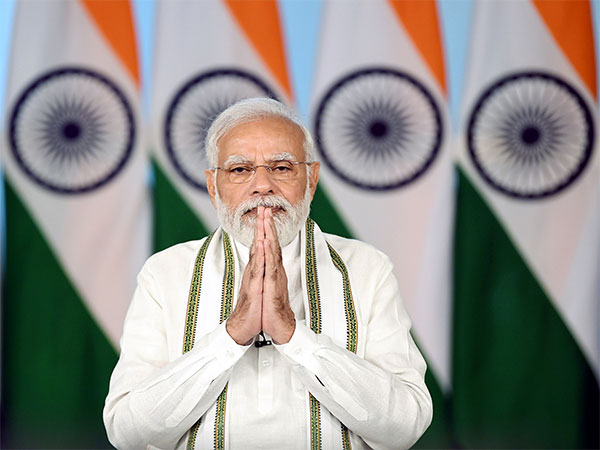
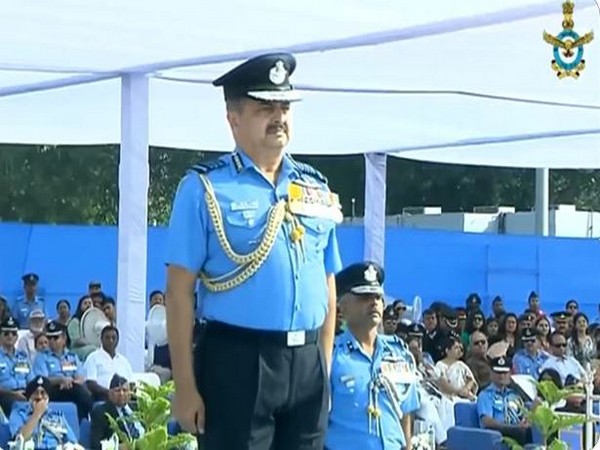
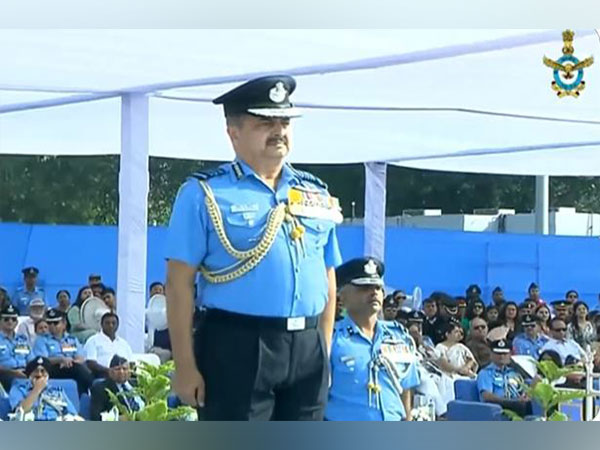

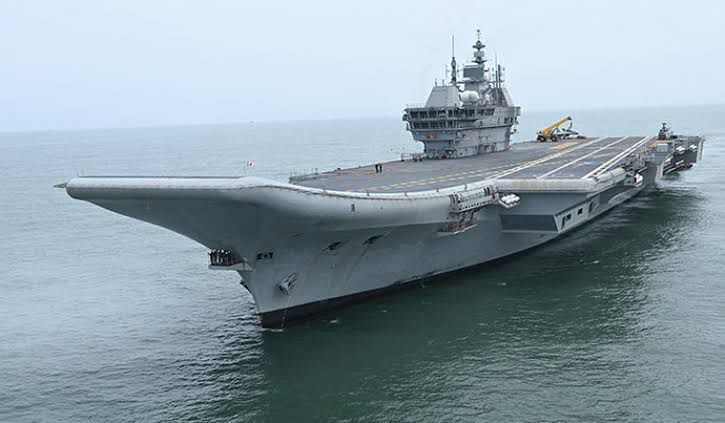
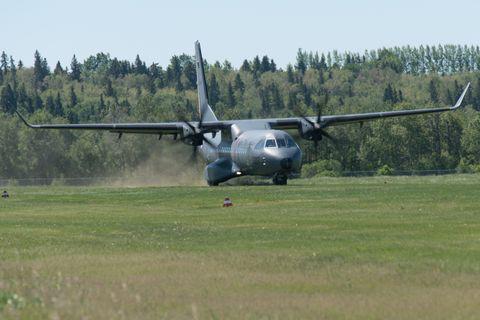
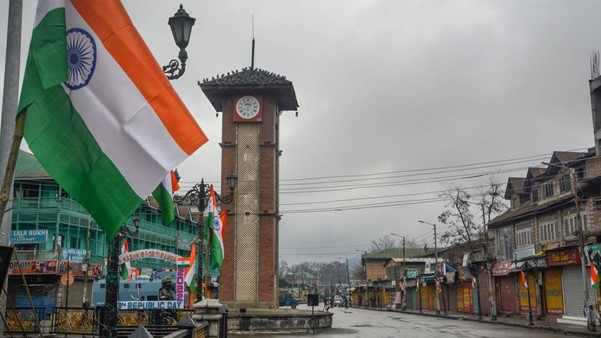
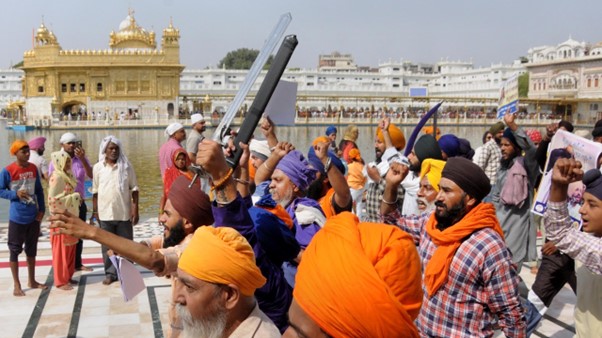
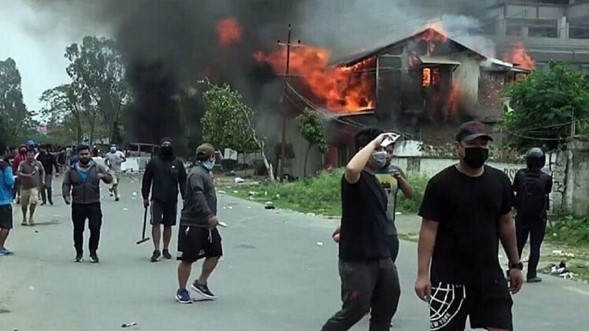
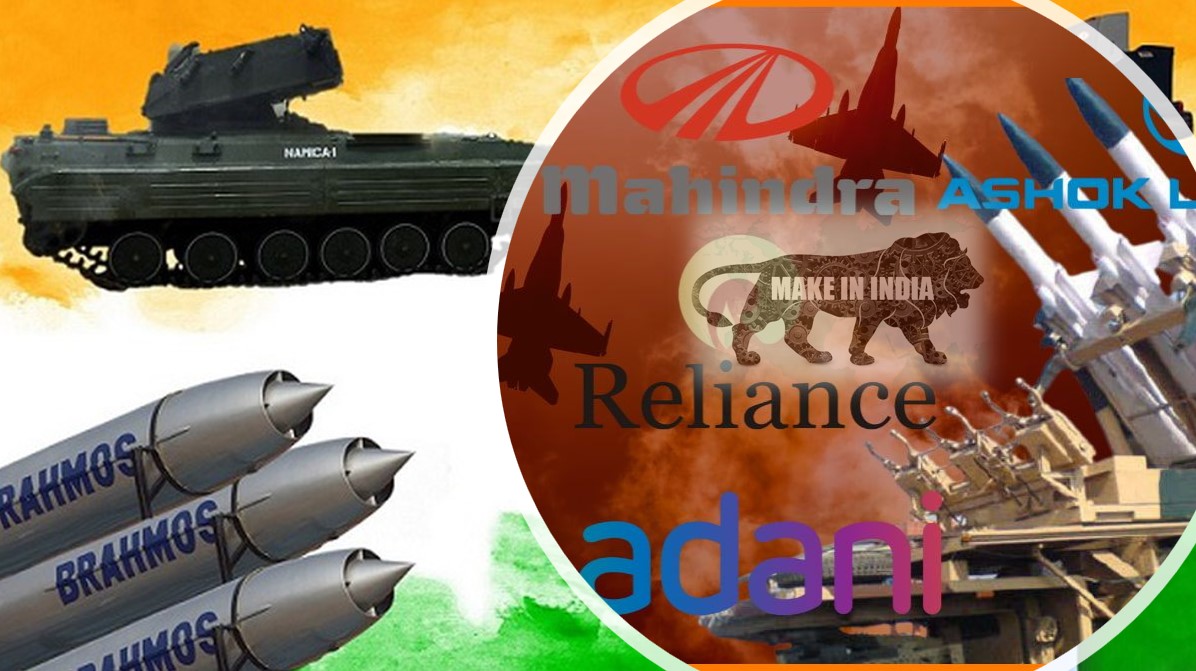






POST COMMENTS (1)
Atul Singh